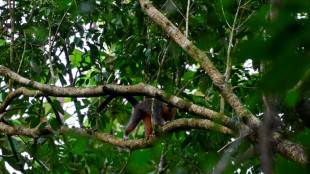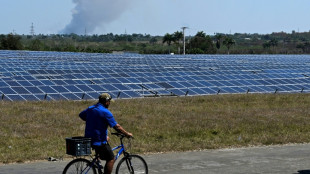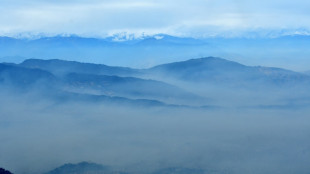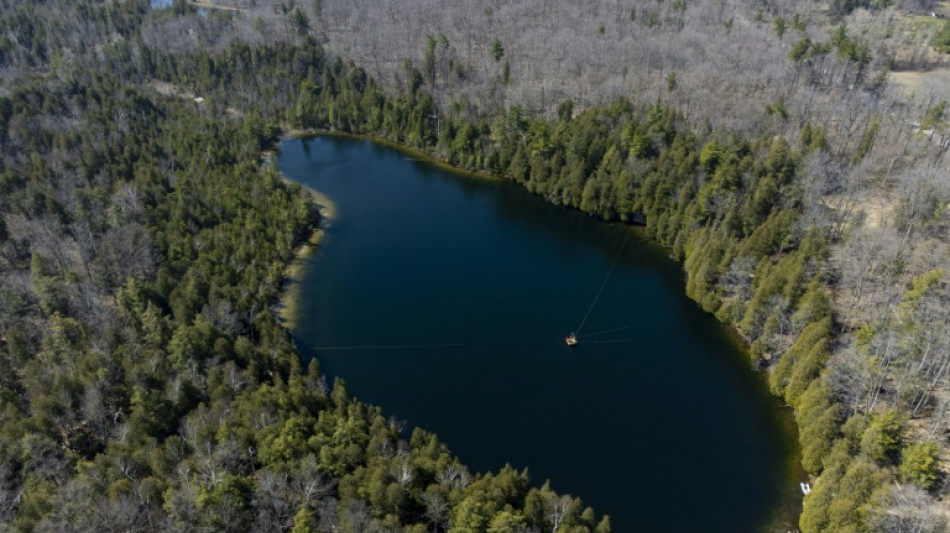
-
 Russian missile strike kills 14 in Ukraine leader's home city
Russian missile strike kills 14 in Ukraine leader's home city
-
Trump's tariff Big Bang puts global economy under threat

-
 I Am Maximus backed for National as Mullins hot streak continues
I Am Maximus backed for National as Mullins hot streak continues
-
2014 World Cup winner Hummels to retire at season's end

-
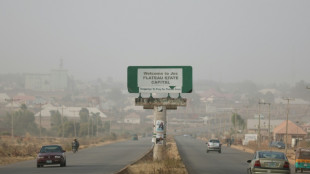 Intercommunal violence kills dozens in central Nigeria
Intercommunal violence kills dozens in central Nigeria
-
Nigerian, S. African music saw 'extraordinary growth' in 2024: Spotify

-
 Russell Brand: From Hollywood star to rape suspect
Russell Brand: From Hollywood star to rape suspect
-
France soccer star Mbappe unveiled in London... in waxwork form

-
 Trump goads China as global trade war escalates
Trump goads China as global trade war escalates
-
Israel expands Gaza ground offensive, hits Hamas in Lebanon

-
 TikTok faces new US deadline to ditch Chinese owner
TikTok faces new US deadline to ditch Chinese owner
-
US Fed Chair warns tariffs will likely raise inflation, cool growth

-
 Mbappe among three Real Madrid players fined for 'indecent conduct'
Mbappe among three Real Madrid players fined for 'indecent conduct'
-
How can the EU respond to Trump tariffs?

-
 Canada loses jobs for first time in 3 years as US tariffs bite
Canada loses jobs for first time in 3 years as US tariffs bite
-
Real Madrid and Barcelona respect each other, says Ancelotti

-
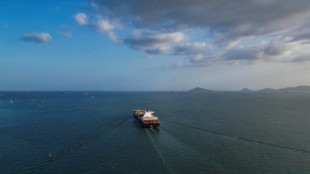 Nations divided ahead of decisive week for shipping emissions
Nations divided ahead of decisive week for shipping emissions
-
Trump goads China after Beijing retaliates in global trade war

-
 Arteta urges Arsenal to enjoy "beautiful" run-in despite injury woes
Arteta urges Arsenal to enjoy "beautiful" run-in despite injury woes
-
London mayor gets new powers to revive capital's ailing nightlife

-
 Italy's ski star Brignone takes on 'new challenge' after serious leg injury
Italy's ski star Brignone takes on 'new challenge' after serious leg injury
-
Amorim in a 'rush' to succeed at Man Utd

-
 PSG coach Luis Enrique targets unbeaten season
PSG coach Luis Enrique targets unbeaten season
-
Duterte victims seeking 'truth and justice': lawyer

-
 US job growth strong in March but Trump tariff impact still to come
US job growth strong in March but Trump tariff impact still to come
-
UK comedian and actor Russell Brand charged with rape

-
 Stocks, oil slump as China retaliates and Trump digs in heels
Stocks, oil slump as China retaliates and Trump digs in heels
-
Postecoglou 'falling out of love' with football due to VAR

-
 EU hails 'new era' in relations with Central Asia
EU hails 'new era' in relations with Central Asia
-
US hiring beats expectations in March as tariff uncertainty brews

-
 'Unique' De Bruyne one of the greats, says Guardiola
'Unique' De Bruyne one of the greats, says Guardiola
-
Automakers shift gears after Trump tariffs

-
 Where things stand in the US-China trade war
Where things stand in the US-China trade war
-
De Bruyne to leave Man City at end of the season

-
 Youthful Matildas provide spark in friendly win over South Korea
Youthful Matildas provide spark in friendly win over South Korea
-
Stocks, oil extend rout as China retaliates over Trump tariffs

-
 De Bruyne says he will leave Man City at end of season
De Bruyne says he will leave Man City at end of season
-
UK spy agency MI5 reveals fruity secrets in new show

-
 Leverkusen's Wirtz to return 'next week', says Alonso
Leverkusen's Wirtz to return 'next week', says Alonso
-
England bowler Stone to miss most of India Test series

-
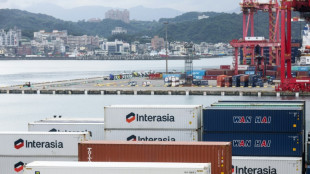 Taiwan earmarks $2.7 bn to help industries hit by US tariffs
Taiwan earmarks $2.7 bn to help industries hit by US tariffs
-
Rat earns world record for sniffing landmines in Cambodia

-
 Elton John says new album 'freshest' since 1970s
Elton John says new album 'freshest' since 1970s
-
EU announces 'new era' in relations with Central Asia

-
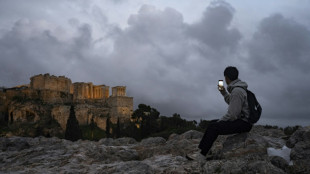 Greece nixes Acropolis shoot for 'Poor Things' director
Greece nixes Acropolis shoot for 'Poor Things' director
-
'Historic moment': South Koreans react to Yoon's dismissal

-
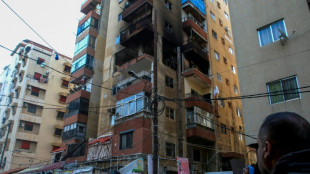 Israel kills Hamas commander in Lebanon strike
Israel kills Hamas commander in Lebanon strike
-
Trump unveils first $5 million 'gold card' visa

-
 Crashes, fires as Piastri fastest in chaotic second Japan GP practice
Crashes, fires as Piastri fastest in chaotic second Japan GP practice
-
India and Bangladesh leaders meet for first time since revolution

| RBGPF | 1.48% | 69.02 | $ | |
| CMSC | -0.54% | 22.14 | $ | |
| SCS | -1.13% | 10.62 | $ | |
| NGG | -4.28% | 66.54 | $ | |
| AZN | -6.68% | 69.29 | $ | |
| RIO | -6.68% | 54.77 | $ | |
| GSK | -6.12% | 36.76 | $ | |
| RELX | -4.62% | 49.17 | $ | |
| RYCEF | -16.39% | 8.42 | $ | |
| BP | -9.29% | 28.675 | $ | |
| JRI | -6.94% | 11.988 | $ | |
| BCC | 0.23% | 94.85 | $ | |
| CMSD | -0.09% | 22.65 | $ | |
| BCE | 1.09% | 22.91 | $ | |
| VOD | -9.72% | 8.54 | $ | |
| BTI | -4.25% | 40.21 | $ |

To track human impact on Earth, scientists probe Crawford Lake
On first glance, it looks like just another small lake in Canada, one of thousands across the vast country. But the view under the surface of Crawford Lake outside Toronto tells a very different story.
Scientists believe the lake's exceptionally well-preserved sediment layers serve as a reference point for a proposed new geological chapter in the planet's history, defined by the considerable changes wrought by human activity: the Anthropocene.
For years, geologists have tried to find the Anthropocene's so-called "golden spike" -- the spot on Earth with the best evidence of this global transformation.
And Crawford Lake -- located in Ontario province, in the greater Toronto area, is that place, according to the International Commission on Stratigraphy's Anthropocene Working Group, which revealed its decision on Tuesday.
Local legend has it that the lake is bottomless. But in fact, it's the exact opposite -- its depths hold unparalleled riches, a phenomenon that put the lake on the short list to be the "spike" years ago.
The pristinely preserved sediments show better than anywhere else on Earth that humans have irrevocably changed the planet at all levels, including its physical composition.
"It's very deep, but it's not very large. So that means that the waters don't mix all the way to the bottom," explains Francine McCarthy, a professor at Brock University who has led the research into Crawford Lake.
"And so the sediments that accumulate in the lake are not disturbed," she told AFP in April, when samples were taken for the ICS's Anthropocene working group.
- 'Distinct fingerprint' -
For centuries, Crawford Lake has been slowly absorbing signs of change. Everything that once floated on the water's surface is now embedded in some form in its sediments.
The first humans to leave their mark on the lake were Iroquois villagers who built homes along its shores. The sediments then showed the mounting influence of European settlers on the landscape, as trees vanished and new species emerged.
Then in the 20th century, fly ash from the use of coal and other fossil fuels settled in the lake, as cities developed and become more industrialized. Heavy metals such as copper and lead also appear progressively in the layers.
"We can see local disturbance. Or we can look at regional effects (like) pollution, said Paul Hamilton, a researcher at the Canadian Museum of Nature.
The lake's sediments can also document global change, he said, such as atmospheric deposition of chemicals.
For McCarthy, the other sites in contention to be the Anthropocene's "golden spike" did not have "such a distinct fingerprint of exactly what the core looks like and what each year looks like."
"Each year has its own personality, like people," she said.
- 'Everything changed' -
Extracting samples from Crawford Lake that can serve as markers for a new geological period requires skill, precision and speed.
Tim Patterson, a researcher at Carleton University in Canada, and his team are specialists. To recover the sediments from the depths of Crawford Lake without damaging them, they fill huge metal tubes with dry ice and alcohol.
The tubes -- about two meters (6.5 feet) long and 15 centimeters wide -- are then plunged into the lake's bed for 30 minutes, so that the sediments can freeze onto them, forming a series of distinct lines for each year, like the rings of a tree.
In April, what interested Patterson the most was traces of plutonium.
The start of the Anthropocene has been set in 1950 "to pick up something that was utterly unique in the history of the world. It was this nuclear testing in the air," he explained.
"Humans had never done that before. And that leaves a record, not just regionally but all around the world."
McCarthy, who has been working at Crawford Lake for nearly four decades, says 1950 also marks when humankind entered into a seemingly endless cycle of consumption, production and pollution.
"So for 12,000 years, it was happening the same way. And then suddenly, very suddenly, within a few years, everything changed," she told AFP.
But McCarthy nevertheless remains hopeful for the future.
"If geologists, who after all are the people who found the plutonium in the rocks and the petroleum in the rocks, if they accept that there is a fundamental change that's due to humans, then maybe action will be taken," she said.
F.Bennett--AMWN
